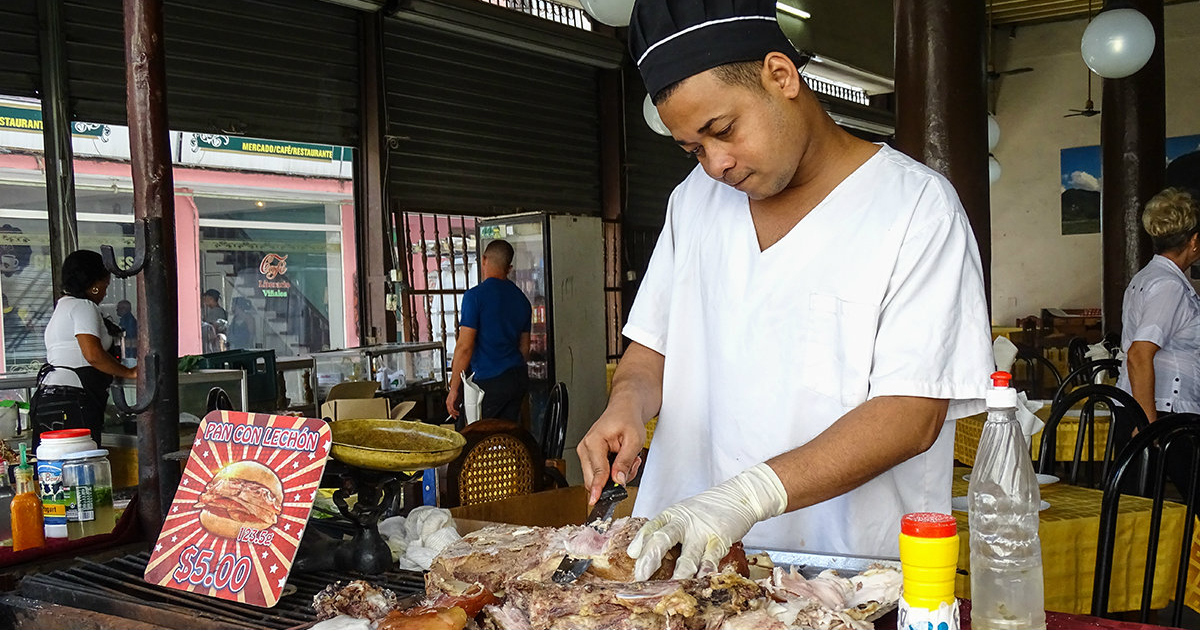
In a desperate attempt to curb the decline in membership levels, the Central de Trabajadores de Cuba (CTC) established this Saturday the country's first labor bureau, aimed at the direct attention of the new economic actors.
This new structure was established in the commerce, gastronomy, and services sector in Havana and was presented by the official newspaper Trabajadores as "a step of singular importance in the current activities of the Cuban labor movement," despite seeming more like an attempt to maintain the relevance of the obsolete organization in the face of the new economic dynamics of the country.
Isdalis Rodríguez, second secretary of the CTC Nacional, ordered the creation of "union sections in the different areas of marketing and in the Micro, Small, and Medium Enterprises (Mipyme) themselves," which, according to the official, will have the mission of representing and organizing "all their workers, which is the main function of the union in Cuba."
The leader admitted that currently, the sectors of commerce, gastronomy, and personal and technical services comprise the majority of the so-called new economic actors in the country, "hence the need to strengthen trade union work as soon as possible."
This was confirmed by Betsy Díaz Velásquez, Minister of Domestic Trade, who indicated that there are currently more than 250,000 self-employed workers in that sector, "over 6,000 micro, small, and medium-sized enterprises (mipymes) dedicated to trade and 166 Non-Agricultural Cooperatives (CNA) performing similar functions, which raises the number of non-state workers to over 340,000, while the state sector has around 190,000."
With the creation of this union bureau, the regime claimed to have responded to one of the main demands of the workers under this new management model: to affiliate with genuine union structures where their concerns and proposals would be addressed by unionists who also belong to the non-state sector.
Leovanis Avila Góngora, a member of the National Secretariat of the Central Workers' Union of Cuba, mentioned that this new union structure "must defend sector policies before business, ministerial, and government leadership."
It is not the first time that the regime tries to impose its outdated and obsolete political and mass organizations on non-state economic management as a strategy to align and "add" workers who are part of the private sector.
Recently, the Cuban leader Miguel Díaz-Canel urged the communists of Sancti Spíritus to expedite the recruitment of workers from private Mipyme to join the ranks of the only recognized Party in Cuba.
"We need to be able to create grassroots structures in them as well, both of the Party and the UJC, with appropriate growth and a greater political connection of those workers," said Díaz-Canel about this form of non-state management, according to the official site Cubadebate.
However, his true intention is revealed, as the ruler previously stated that the lack of regulation for Mypimes caused chaos in the Cuban economy, driving up inflation and exacerbating inequality in the country.
In March, the General Secretary of CTC, Ulises Guilarte de Nacimiento, acknowledged the inability of the union organization he leads to solve "all the problems," but he understands that if workers see their union representatives discussing their concerns, they will believe them.
"If people see us debating the issues that constitute their concerns, their dissatisfaction, and that we are generating a proactive effect to improve their salary and working conditions, people will believe in the work and usefulness of their union," he said without any shame.
What do you think?
COMMENTFiled under: